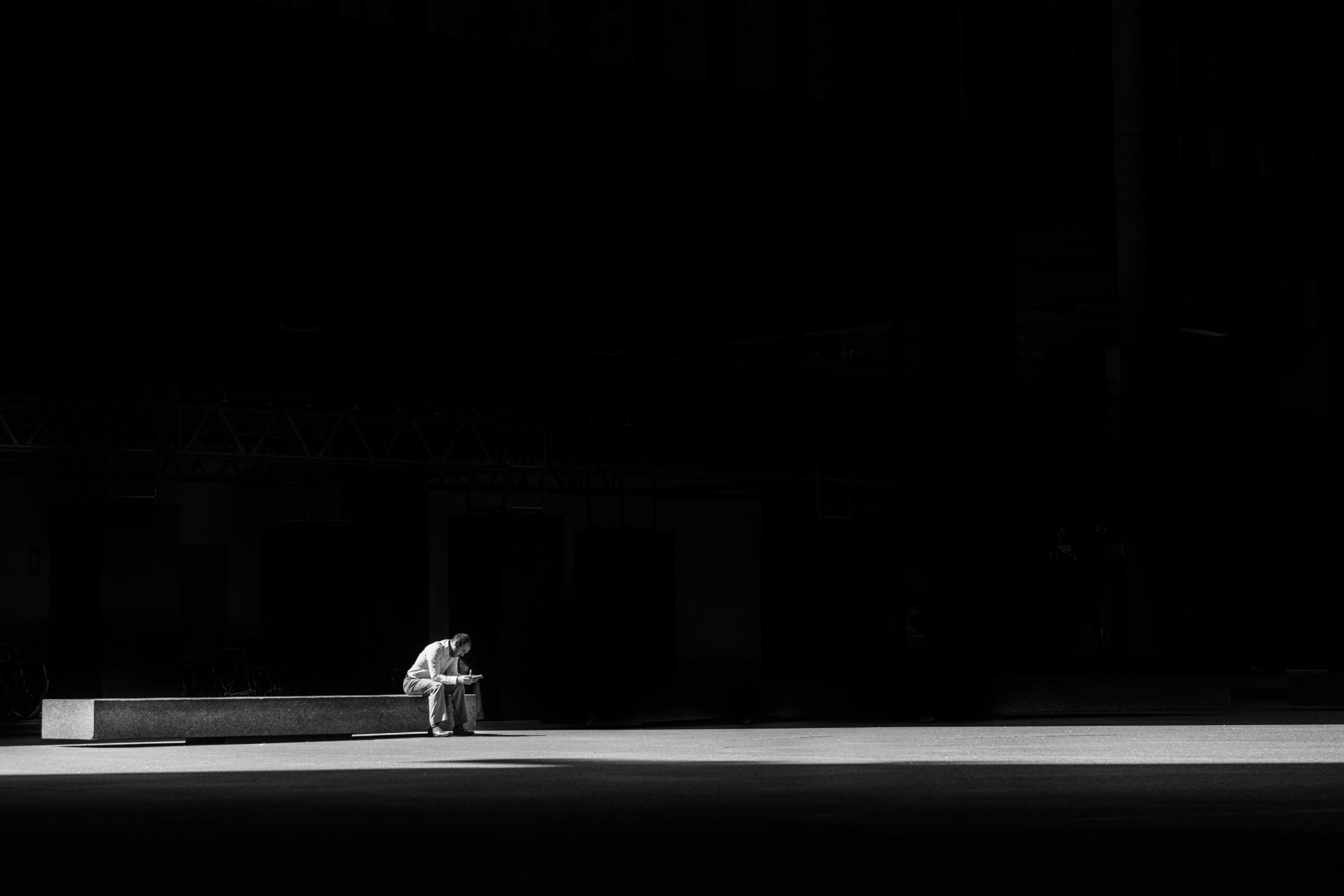
We have to be very careful in how we wage spiritual war. Thanks to some fanciful fictions and inspirational clichés, a lot of bad theology has crept into the Church’s thinking on these matters. The way some people talk about prayer owes more to New Age spirituality than biblical Christianity. Many of us were even taught in our church classes about “spiritual warfare” in ways that seem foreign to the Bible!
Sometimes God and Satan are cast as warring opposites, a kind of yin and yang balancing each other out, even while squaring off. Which side will win in the battle over your soul and the fate of the universe? Well, whichever side you support, of course. Obviously it sounds a little silly when put that way. But books, songs, and movies were made for the evangelical subculture that reflected just that kind of warped theology of the spiritual plane. Jesus sometimes sounds like a version of Tinkerbell, needing our “applause” to gain strength and prevail over defeat.
When the apostle James says that “the prayer of a righteous person is very powerful in its effect” (5:16), we need to take great care to notice that “in its effect” gives a shape to the prayer. Literally, this verse can be expressed this way: “the prayers that work”—or, “the effective prayers”—“are very powerful.” This tells us two things. First, some prayers don’t “work.” By this, I assume it is meant that we don’t always get what we ask for when we pray. We may ask God to provide a certain desire or heal a certain wound. Sometimes he says no. But second, we notice that the prayers that have effect, have great power. Where could that come from? Paul tells us:
Pray at all times in the Spirit with every prayer and request, and stay alert in this with all perseverance and intercession for all the saints. Pray also for me, that the message may be given to me when I open my mouth to make known with boldness the mystery of the gospel. For this I am an ambassador in chains. Pray that I might be bold enough in Him to speak as I should. (Ephesians 6:18-20)
The power comes not from us, but from God himself. The Holy Spirit inspires our prayers and empowers our prayers and receives our prayers and applies our prayers.
You know when you’re frustrated in traffic, irritated with your family, triggered by a reminder of your past, tripped up by a recurring sin, or depressed by an inconsolable loneliness that “great power” is not something that comes to you naturally. It isn’t found “within”—at least, not within your natural self. This is also something to stay alert about.
We practice awareness of our own weakness that we might simultaneously practice awareness of the Spirit’s presence. This is what prayerlessness is, essentially—forgetfulness of God. We don’t pray more often because we too often think, “I’ve got this.” But the power that effective prayer has is nothing and nobody less than the Holy Spirit of God, who not only hears the prayer, but carries the prayer and replies to the prayer, and even inspires the prayer!
But let’s take it a step further. Prayer isn’t magic, because we have no power in and of ourselves. Prayer is expressed helplessness. But also, prayer isn’t magic, because God isn’t helpless without our moving him or unleashing him or activating him in some way. I cringe every time I hear some well-intentioned preacher use the phrase “let God”—as in, “You have to let God take control of your life” and “You need to let God be God.”
First of all, God doesn’t need you to let him do anything. He isn’t restrained or controlled by you. God isn’t like some tethered toddler on a parental leash at the mall, struggling for freedom to have at the world around him. We have forgotten whose armor we have on if we think we have the power to “let God” do anything. He’s God. We’re not. Period.
So in prayer, you are not commanding the Spirit or summoning the Spirit like he’s a cosmic butler. In prayer, you are not in the place of control but in the place of submission. Through prayer we bare our hearts, minds, and souls to the God who wants to be our friend and deliverer. And the more we do this baring, the more we will experience of his power, even in our lowest and weakest of moments. Prayer is essentially weaponized weakness.
No, prayer isn’t magic, because we have no power in and of ourselves. Prayer is expressed helplessness. It is a verbalized acknowledgment of our own lack of power, of our own weakness. And it is in our weakness that God’s power is perfected (2 Cor. 12:9).
It is for this reason that Christ’s model prayer given to his disciples in teaching them how to pray includes an acknowledgment that the kingdom is God’s, not ours. We will not prevail if God does not prevail. And since he will prevail, the only way for us to prevail with him is to put our prayers of faith in him.
Apart from Christ, we can accomplish nothing. But in Christ—having prevailed through him over the enemy, having been strengthened to withstand spiritual attacks, and having direct access to his powerful presence through prayer—we are more than conquerors. Because of the blessings of the gospel, we who once were weak are now eternally strong!

